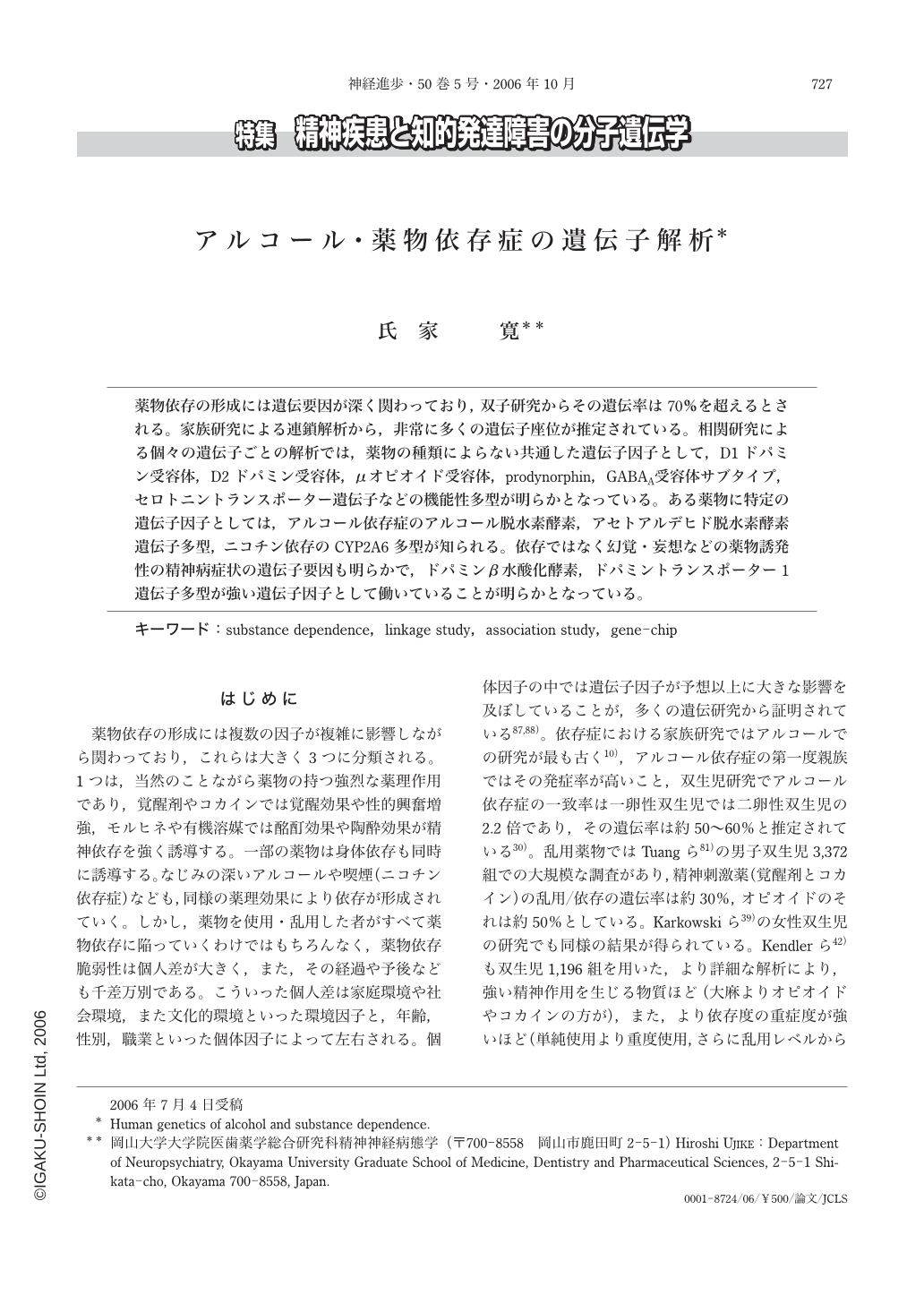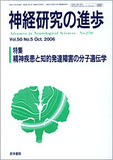Japanese
English
- 有料閲覧
- Abstract 文献概要
- 1ページ目 Look Inside
- 参考文献 Reference
薬物依存の形成には遺伝要因が深く関わっており,双子研究からその遺伝率は70%を超えるとされる。家族研究による連鎖解析から,非常に多くの遺伝子座位が推定されている。相関研究による個々の遺伝子ごとの解析では,薬物の種類によらない共通した遺伝子因子として,D1ドパミン受容体,D2ドパミン受容体,μオピオイド受容体,prodynorphin,GABAA受容体サブタイプ,セロトニントランスポーター遺伝子などの機能性多型が明らかとなっている。ある薬物に特定の遺伝子因子としては,アルコール依存症のアルコール脱水素酵素,アセトアルデヒド脱水素酵素遺伝子多型,ニコチン依存のCYP2A6多型が知られる。依存ではなく幻覚・妄想などの薬物誘発性の精神病症状の遺伝子要因も明らかで,ドパミンβ水酸化酵素,ドパミントランスポーター1遺伝子多型が強い遺伝子因子として働いていることが明らかとなっている。
It has been demonstrated that genetic factors affect strongly development of substance dependence including alcohol and smoking, and twin studies indicated that hereditary rate was over 70%. Many linkage and association studies were preformed in different populations and showed many loci and genes associated with substance dependence. As shared genetic factors, functional polymorphisms of genes encoding D1 and D2 dopamine receptors, mu-opioid receptor, prodynorphin, subunits of GABA-A receptor and 5HT transporter were risk for alcohol, amphetamines, opioids, cocaine and nicotine dependence. As specific genetic factors, dysfunction alleles of the alcohol and aldehyde dehydrogenase genes were potent negative factors against alcohol dependence, and poor metabolizer of CYP2A6 was negative risk for nicotine dependence. Besides dependence, substance-induced psychoses were also affected by individual genetic background, and genetic variants of dopamine-beta hydroxylase and dopamine transporter were risk for hallucination and delusion induced by cocaine, alcohol and methamphetamine.

Copyright © 2006, Igaku-Shoin Ltd. All rights reserved.


